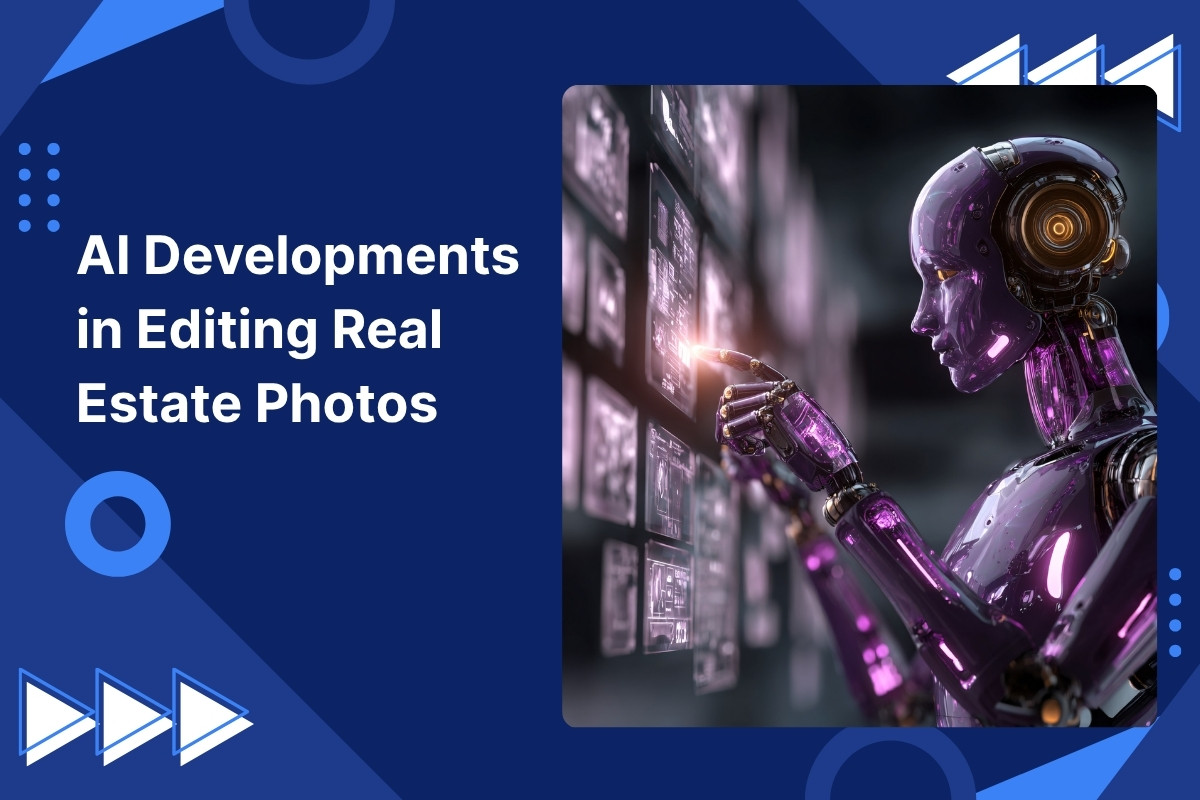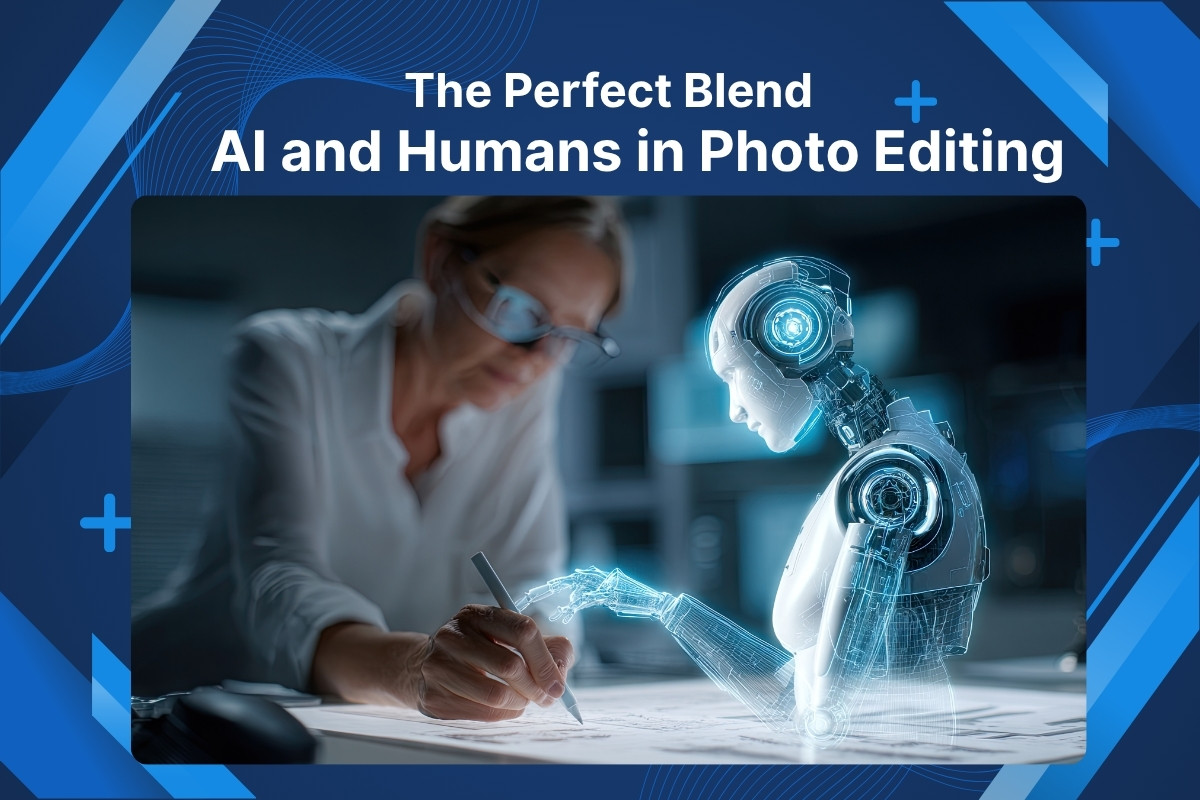In today's digital age, AI has developed rapidly and changed the way users work, including the real estate photo editing industry. AI has brought convenience and outstanding speed, but can it completely replace the skillful hands of humans? In this article, we will find the answer to can AI replace human photo editors?
AI Developments in Editing Real Estate Photos
Because AI can automate tasks that previously required hours of manual labor, it is becoming more and more popular in the real estate photography and photo editing sectors. Up to 65% of professional photographers have incorporated AI into their workflow, primarily for repetitive tasks like adjusting exposure, cleaning up backgrounds, and removing unwanted objects, per a June 2025 WiFiTalents report. Furthermore, almost 90% of professional photo editors think AI will have a big impact on the photography industry, and 60% of them use it in some capacity.
There is more to this trend than just statistics. AI can process images in a matter of seconds, handling tasks like object removal, basic color correction, and sky replacement. AI is starting to become the norm in the real estate sector, where a property's appeal is determined by its photos. But even with its rapid advancement, artificial intelligence still has drawbacks, raising the important question of whether AI can fully replace human photo editors.

Comparing AI and Human in Photo Editing
| Criteria |
AI Real Estate Photo Editing |
Photo Editor |
| Output quality |
- Basic editing (background removal, sky replacement, object removal, and virtual staging) is of good quality, crisp, and realistic.
- Regular and consistent results
- However, in complex color and light cases, color and light correction is frequently unnatural or inaccurate.
|
- Recognize feelings, produce, and manage minute details.
- Precise color and lighting adjustments
- Maintain organic textures, make sure they fit the context, and steer clear of legal blunders.
|
| Speed |
Very fast – seconds to minutes per image. |
|
Slower – 12–24 hours for basic editing, 24–48 hours for virtual staging.
|
|
| Expense |
Very cheap – around $0.07/image or free with the basic version.
|
Higher – $0.3–$0.7/photo, virtual staging $24–32/photo.
|
| Creativity & Emotion |
- Lack of originality, merely producing visual effects in a format that already exists
- Lack of feeling, "soulless" outcomes, and a lack of comprehension of the narrative.
|
- Recognize client needs, communicate feelings, and have a distinct style.
- Be innovative and present a distinct image to the market.
|
| Complex processing capabilities |
Limited to low light, color, difficult composition, and fine detail. |
Good handling of complex images, precise detail restoration and accurate color of interiors
|
| Custom & Branding |
Limited, difficult to customize to individual requirements or brand style. |
Flexible, ensuring consistent brand style and specific requirements. |
In summary, can AI take the place of human photo editors? Not exactly. For repetitive tasks, AI is faster and less expensive than humans, but humans still outperform them in terms of complexity, creativity, and quality. AI is a supplement, not a replacement, particularly in the real estate industry where realistic and emotionally compelling images are essential.

The Perfect Blend: AI and Humans in Photo Editing
The best answer to the question of whether AI can replace human photo editors is a hybrid strategy that combines AI and humans rather than a head-to-head competition. While humans refine to add emotion, creativity, and quality control, AI takes care of routine tasks like object removal, background retouching, and color adjustment. The greatest helper for editors with simple and repetitive editing tasks will be artificial intelligence.
Typical hybrid workflow:
-
AI makes the first edit quickly and cheaply.
-
Humans edit and improve (correct mistakes, add artistic value).
-
High speed, low cost, and expert quality are the outcomes.
This model is being used by services like Picpee, Phixer, BoxBrownie and PhotoUp. For instance, Picpee has quicker turnaround times and cheaper costs than hiring a professional editor because it uses AI for basic editing and a team of experts for finishing. Together, the real estate sector can cut expenses, produce stunning images that make properties stand out in the market, and accomplish speedy turnarounds.

In conclusion
Can AI take the place of human photo editors? No, but artificial intelligence is a useful tool to help. A hybrid combination that combines the speed of machines and the sophistication of humans offers the best of both worlds in light of the expanding AI trend. How do you feel about this subject? Comment below!
 Single Exposure
Single Exposure Room Cleaning
Room Cleaning Reels
Reels Blended Brackets (HDR)
Blended Brackets (HDR) Changing Seasons
Changing Seasons Slideshows
Slideshows Flambient
Flambient Water in Pool
Water in Pool Individual
Individual 360° Image Enhancement
360° Image Enhancement Lawn Replacement
Lawn Replacement Team
Team Virtual Staging
Virtual Staging Rain to Shine
Rain to Shine Add Person
Add Person Remodel
Remodel Custom 2D
Custom 2D Remove Person
Remove Person 360° Image
360° Image Custom 3D
Custom 3D Background Replacement
Background Replacement Day to Dusk
Day to Dusk Property Video
Property Video Cut Outs
Cut Outs Day to Twilight
Day to Twilight Walkthrough Video
Walkthrough Video Change color
Change color 1–4 Items
1–4 Items



